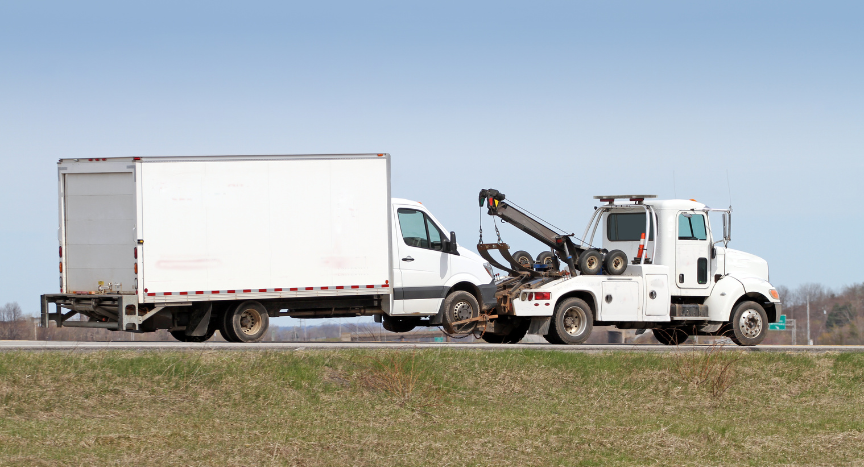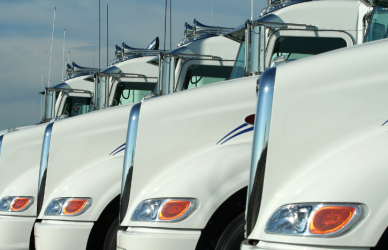Several state legislatures are making strides to protect consumers, including truck drivers, from unjust towing practices. The Owner-Operator Independent Drivers Association (OOIDA) continues to advocate for regulatory measures to prevent nonconsensual towing abuse. Here’s a breakdown of the latest efforts in Missouri, Arkansas, North Carolina, Illinois, and Pennsylvania.
Missouri’s Push for Accountability
Missouri’s House Transportation Committee is advancing HB745, a bill by Rep. Dave Griffith (R-Jefferson City) that aims to curb predatory towing with several critical reforms.
Key measures include creating a formal complaint process, introducing a temporary ban on towing companies found breaking the law, and requiring towing details to be listed on nonconsensual tow invoices. The proposed legislation would also establish a “Towing and Recovery Review Board,” which includes representation for owner-operator truck drivers.
Griffith explained, “This bill will create an avenue for independent truckers and the trucking industry to dispute the charges. Right now, they don’t have that.”
Under HB745, truck operators could also select their preferred towing company unless specific conditions prevented it. The bill also prohibits per-pound pricing for nonconsensual tows and regulates situations where disputed fees delay vehicle releases.
OOIDA’s Executive Vice President, Lewie Pugh, shared his support, noting how unfair towing costs can devastate small trucking businesses. “When something like this happens to you as a small-business trucker, your life is pretty much devastated,” he testified.
HB745 awaits further deliberation in Missouri’s House.
Arkansas Targets Predatory Practices
Arkansas is considering HB1897, sponsored by Rep. Stetson Painter (R-Mountain Home). The bill aims to eliminate deceptive towing practices and excessive fees for both commercial and private vehicles.
Labor and Licensing Secretary Daryl Bassett emphasized the issue, testifying that “predatory towing is an issue that continues to rear its ugly head.” He praised the bill’s design to protect consumers and ethical towing businesses alike.
One standout provision allows vehicle owners to recover their cargo quickly, paying 35% of its value upfront while towing companies retain their lien on the load. “They can get their cargo, they can get it to market, they can make the sales, and they can pay the tow truck operator,” said Bassett, framing it as a win for all parties.
HB1897 also proposes revisions to the Arkansas Towing Board, restructuring its membership to regulate the industry better and reduce conflicts of interest.
Painter acknowledged the bill’s imperfections but called it “a step in the right direction.” Following committee approval, the bill is progressing through the legislative process.
North Carolina Proposes Dual Legislation
Lawmakers in North Carolina are considering two separate bills addressing nonconsensual towing and vehicle immobilization.
The first, H472, seeks to ban vehicle booting of commercial trucks, imposing misdemeanor charges on violators. It would also mandate the prompt return of cargo during nonconsensual tows or law-enforcement-initiated removals. Provisions allow trailer swaps if the replacement trailer is of equal or greater value.
The second bill, H577 (the “Protect Towers and Truckers Act”), proposes a Towing and Recovery Commission to manage disputes and evaluate towing rate reasonableness within the state’s rotation system. The bill also includes requirements for tow companies to provide a standard hourly price list before joining the rotation system.
Both pieces of legislation aim to address long-standing issues with predatory practices in the state.
Illinois Cracks Down on Fraudulent Operators
Illinois lawmakers are moving forward with SB2040, spearheaded by Sen. Celina Villanueva (D-Chicago), to hold unethical towing operators accountable.
The bill focuses on companies that evade penalties by operating under new business names. Under the proposed law, violators risk having their tow trucks impounded and their plates suspended until fines are settled. Additionally, restrictions would prohibit such operators from acquiring new licenses for three years.
“For too long, predatory towing operators have taken advantage of unsuspecting drivers, leaving them with outrageous fees, missing belongings, and no recourse,” Villanueva said. “This legislation is about restoring fairness and accountability to the system.”
The Senate has advanced the measure for further consideration.
Pennsylvania to Expand Emergency Towing Options
Rep. Stephanie Borowicz (R-Clinton/Union) is tackling towing regulations in Pennsylvania with HB188, a proposal set to offer flexibility for truckers in emergency situations.
Under the current rules, trucks needing emergency service must be towed to the nearest garage or safe location. HB188 would allow large trucks, including overweight combinations, to head directly to a facility of the owner’s choice. However, the tow must follow a direct and immediate route to either the repair site or a designated safe area.
Borowicz argued the bill would streamline regulations while improving road safety for all travelers.
The Bigger Picture
These legislative reforms mark meaningful progress in addressing unfair towing practices. With predatory behavior remaining an issue, these bills could bring much-needed protections for small-business truckers and others impacted by nonconsensual tow incidents.
Advocates like OOIDA will keep pressing for these reforms until fairness and accountability become the industry standard across the United States.
Source: Land Line











